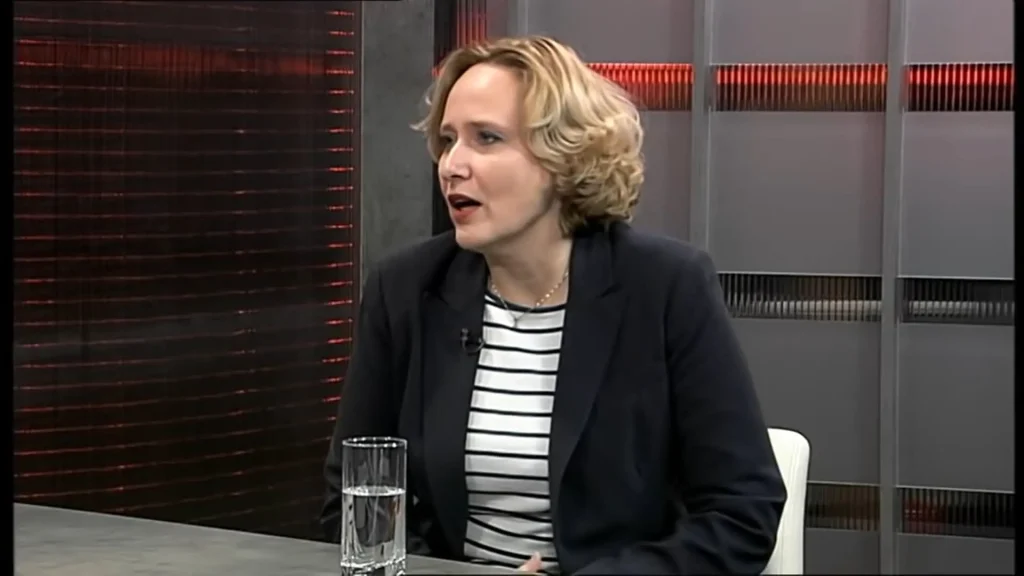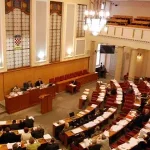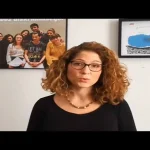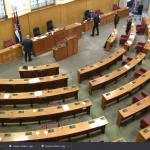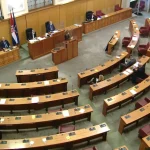“An analysis of the government’s opinion on the report for 2019 shows that the competent bodies acted or act in only 20% of the recommendations, which is less also in relation to the report for 2015 (29%), which the parliament did not adopt,” says Vidović, whose eight-year term expired on 1 March. She did not apply for re-election.
“Especially worrying is the government’s failure to respond to as many as 60% of the recommendations,” says Vidović, who in her report for 2020 gave as many as 142 recommendations for stronger human rights protection in almost all areas of life, addressing them mostly to the competent ministries.
She also says that the Office for Human and Ethnic Minority Rights, as the body in charge of reporting on the implementation of the public ombudsman’s reports, has not done so since her report for 2013.
“The absence of parliamentary debate evidently has a number of long-term repercussions that do not contribute to better human rights protection,” says Vidović, noting that the Ministry of the Interior is still denying her office direct access to data on the treatment of irregular migrants in its computer system.
Most complaints refer to health system
The Office of the Public Ombudswoman, which in 2020 had 53 employees, acted in close to 5,000 cases, of which slightly over 2,900 were new ones, an increase of 16% from 2019.
This was mostly due to the coronavirus pandemic and earthquakes which have strongly affected human rights in Croatia, Vidović says, noting that just as in 2019, most of the complaints last year referred to the health system (328). For the first time, among the five most frequent types of complaints, with an increase of 49%, were public utilities.
Around 10% of all the new cases referred to the coronavirus epidemic and the number of such complaints would have probably been much higher had the office of the public ombudswoman not been damaged in the 22 March 2020 earthquake, which prevented it from receiving complaints regularly in the first months of the epidemic.
The epidemic has strongly affected both patients and health workers, who have taken the brunt of the health crisis, Vidović says.
As regards patients, according to data from the Croatian Health Insurance Fund (HZZO), in the first ten months of 2020 the number of visits to family doctors dropped by 21.5% compared to 2019, the number of visits by pre-school children dropped by 22.6%, and of those by women by 20.7%. At the same time, the number of services for which physical contact is not necessary rose by one-third.
Members of the public complained to the ombudswoman about having to wait in lines outside health clinics, having to speak about their health problems and family circumstances without any privacy and about being examined through the window of their family doctor’s office.
Waiting lists for specialist examinations have not grown smaller and for certain types of examinations they have grown longer. The epidemic and the mobilisation of the health system in March and April, when only medical emergencies and COVID-19 cases were dealt with, caused a new disruption because a large number of examinations, diagnostic procedures and surgeries were cancelled or postponed until further notice, says Vidović.
According to HZZO data, the number of appointments for first-time specialist examinations dropped significantly in 2020 (from 129,356 in 2019 to 55,007), as did the number of follow-up appointments (280,599 as against 515,590 in 2019). The Health Ministry established a call centre to redirect patients to other hospitals in Zagreb but aside from that measure, the plans are not known as to how to provide citizens, within a reasonable time, with all medical services, says Vidović.
She also notes that Croatia has a shortage of family medicine teams (-121), pediatric health care teams (-52, mostly in Zagreb), dental medicine teams (-205) and gynecology teams (-58).
More than 270 decisions by national COVID-19 response team
Vidović also comments on decisions made by the national COVID-19 response team, saying that “its initial, as well as most of its subsequent decisions restricted basic rights and freedoms guaranteed by the Constitution and international documents, from freedom of movement and assembly to the right to privacy.” She describes as particularly worrying the ban on or restriction of private gatherings.
She notes that the granting of permits to leave one’s place of residence was uneven, and in some cases “some members of a household obtained them while other members of the same household were denied those permits without any explanation.”
The permits also obstructed access to public services for residents of rural areas and islands, while the cancellation of public transport made health and social services in remote areas less available, notably for elderly people.
Citizens’ having problem getting around the new circumstances was also due to the large number of decisions made by the national team, 271 by 13 January 2021.
Lack of timely and verified information
In her report for 2020, Vidović also comments on the Zagreb earthquake, noting that media and social networks showed that citizens did not receive timely and verified information on the competent institutions and available help, with the situation having been additionally complicated by epidemiological restrictions and restriction of movement. Public disputes about the way of financing post-earthquake reconstruction between the City of Zagreb and the competent ministry and objections that independent experts were not sufficiently consulted in the decision-making process have deepened mistrust of state institutions, she says.
She notes that “many citizens still do not know what to do and how to exercise their rights, and their mistrust of state institutions and the system is great.”
By 18 January 2021, 202 applications were submitted regarding the exercise of legal rights related to reconstruction, she says, repeating that it is necessary to form mobile teams consisting of staff from the Construction Ministry and/or the City of Zagreb to advise citizens on the ground, free of charge, about their rights and help them write their applications.
The direct damage from the quake has been estimated at more than HRK 86 billion, and it is evident that reconstruction process will be long, complex and financially demanding, Vidović says in her report for 2020.
For more about politics in Croatia, follow TCN’s dedicated page.

